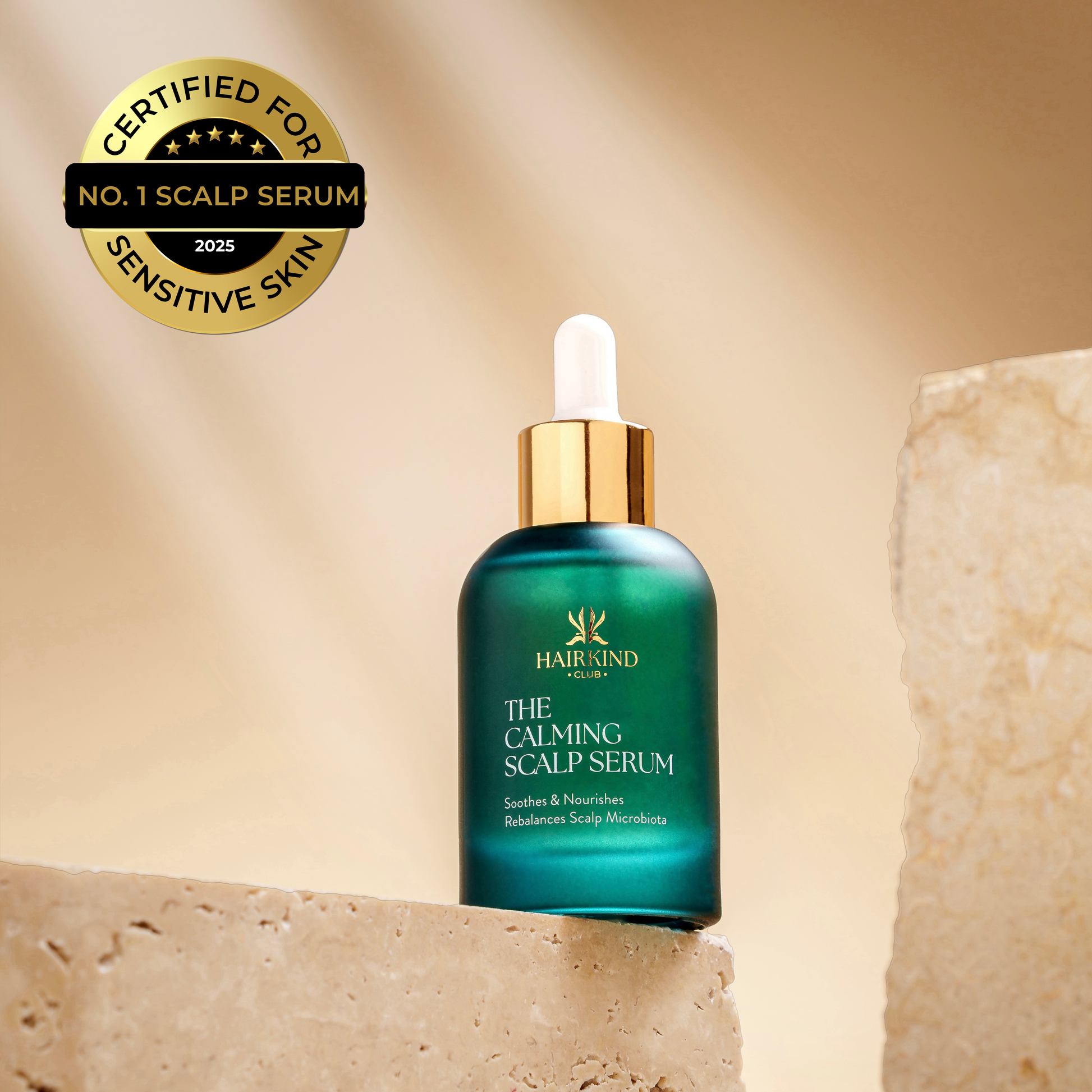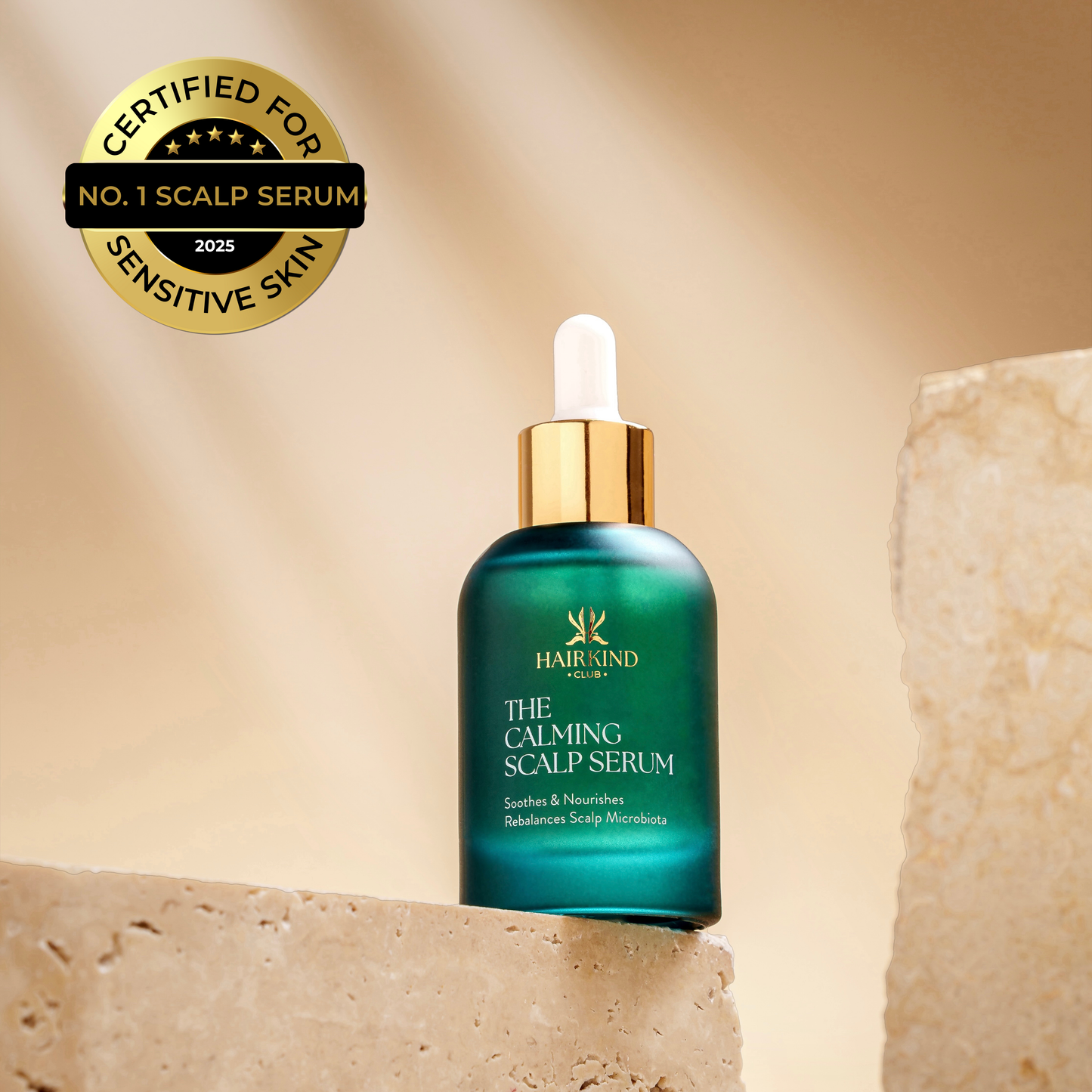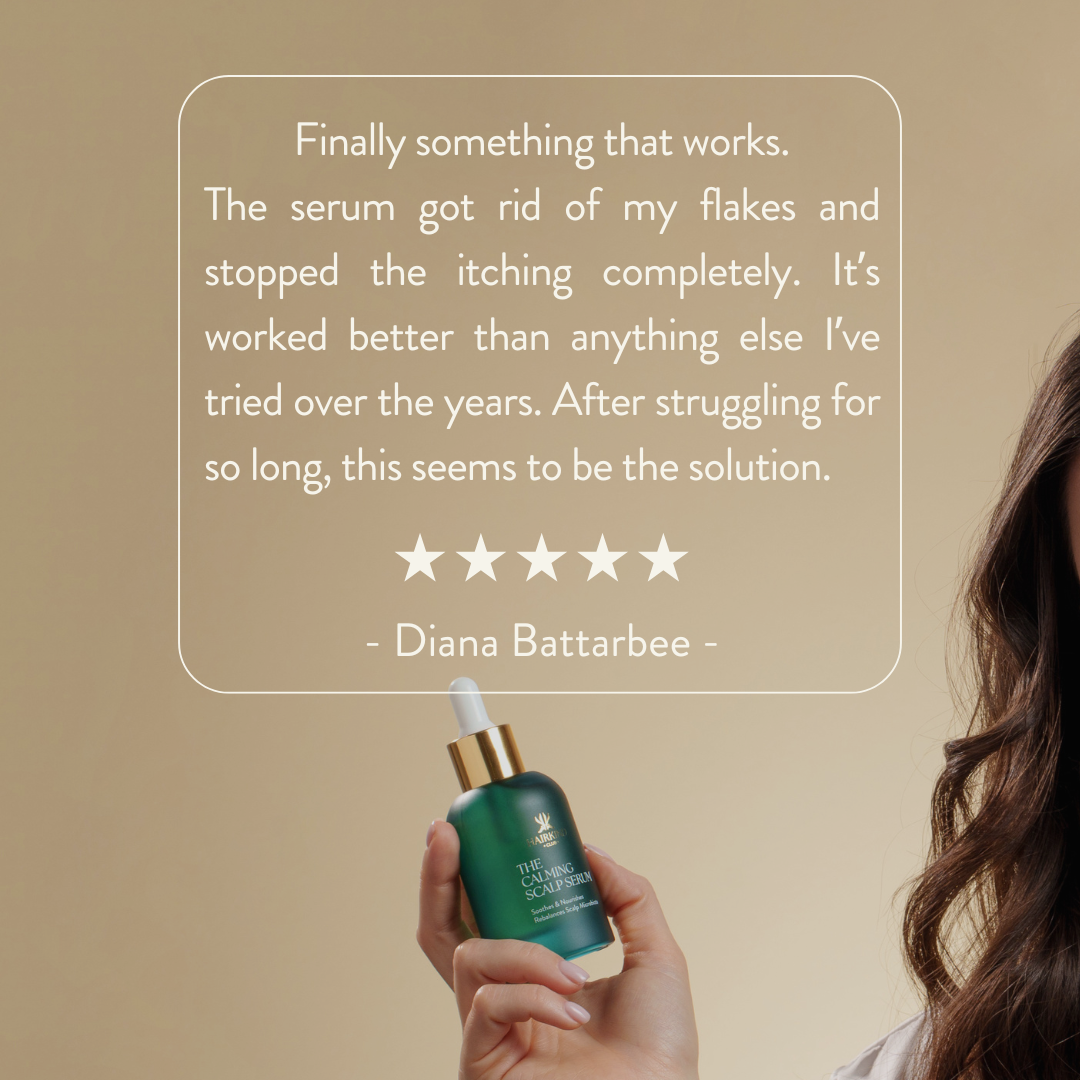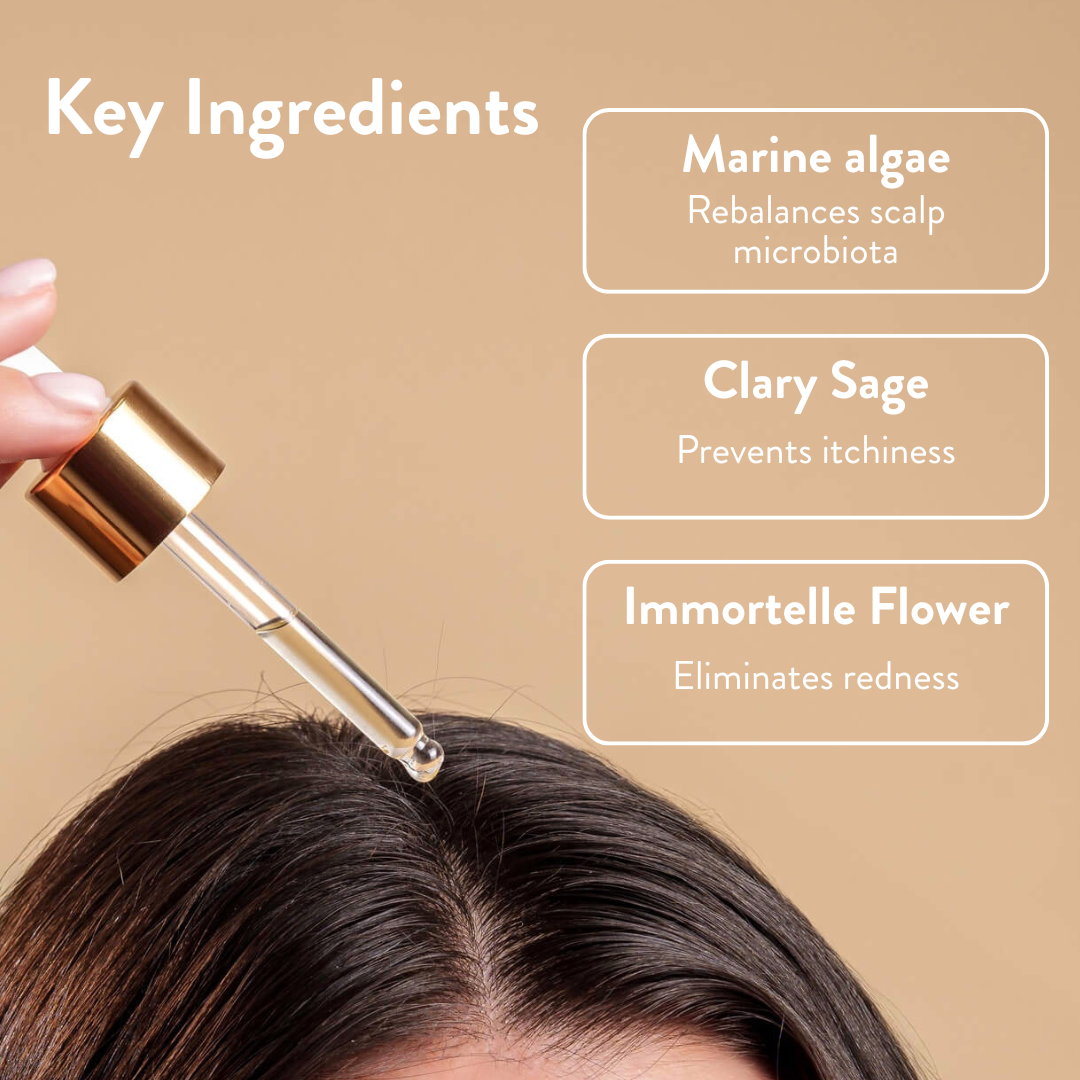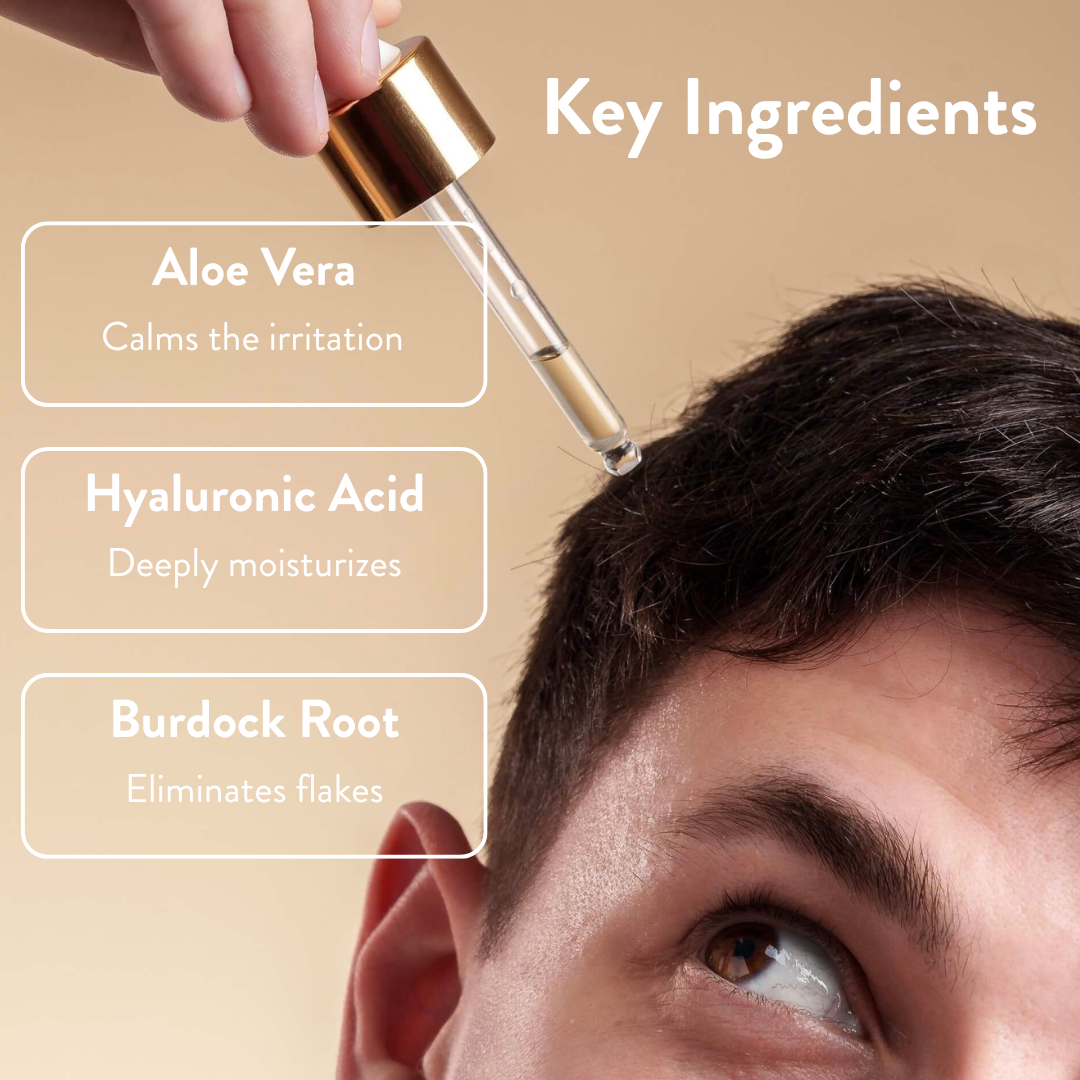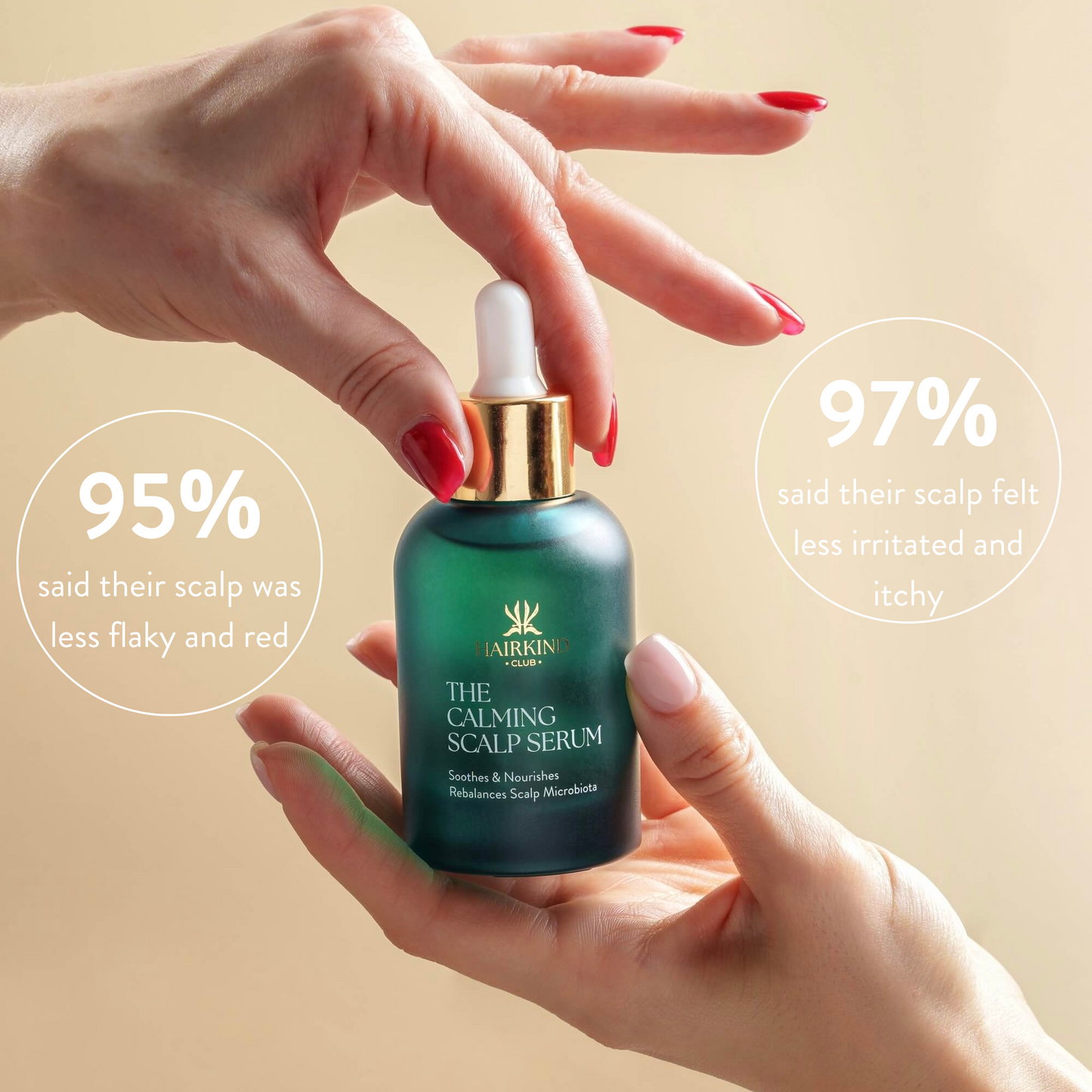Your scalp is complicated - much more than just the skin under your hair. It has something scientists measure called pH balance which can be the difference between a comfortable scalp and one that's constantly irritated and flaky. Let's break down what pH balance actually is and why you should care about it.
Understanding pH Balance
pH measures how acidic or alkaline something is on a scale from 0 to 14. Neutral is 7, anything below that is acidic and above is alkaline (or basic). Your scalp naturally stays slightly acidic - usually between 4.5 and 5.5. This isn't random - this slight acidity serves an important protective purpose.
Scientists often call this the "acid mantle" - basically a thin protective layer that acts as your body's defense system. It keeps your scalp's ecosystem of microorganisms in balance, which is essential for a healthy scalp.

When Things Go Wrong
When your scalp's pH gets thrown off balance:
- Your scalp's microbiome gets disrupted: The natural balance of microorganisms living on your scalp changes, which can lead to various scalp problems.
- Your scalp becomes more sensitive: With a weakened pH barrier, your scalp reacts more easily to things that wouldn't normally bother it.
- Oil production goes haywire: Your scalp might start producing too much oil to compensate or become extremely dry and flaky.
- Inflammation sets in: Ongoing pH problems can lead to chronic inflammation - that means persistent redness, scaling and irritation.

What Throws Off Your Scalp's pH
Several everyday things can mess with your scalp's natural pH:
- Strong shampoos: Many regular shampoos are too alkaline and strip away your scalp's natural acids. When shopping for shampoo, look for products that explicitly state they're pH-balanced (ideally between 4.5-5.5) for scalp health. Avoid harsh cleansers like sodium lauryl sulfate (SLS) and ammonium lauryl sulfate (ALS), which can significantly disrupt your scalp's natural pH. Instead, opt for gentler surfactants like cocamidopropyl betaine or sodium cocoyl isethionate. Products containing natural oils, plant extracts, and moisturizing ingredients help maintain your acid mantle. If you have a sensitive scalp or conditions like seborrheic dermatitis, look for shampoos with zinc pyrithione, ketoconazole or salicylic acid, which address these issues while respecting pH balance. When possible, choose sulfate-free formulations as these tend to be less disruptive to your scalp's natural ecosystem.

- Hard water: Water with lots of minerals can affect pH and leave behind residue that irritates your scalp. If you're dealing with hard water at home, there are several practical solutions to protect your scalp. Installing a shower filter is the simplest approach—these affordable devices attach to your shower head and reduce mineral content. For a more comprehensive solution, consider a whole-house water softening system that removes calcium and magnesium from all water sources. Between washes, you can use a clarifying treatment once every 1-2 weeks to remove mineral buildup, or try a DIY rinse with apple cider vinegar diluted in water (1 part vinegar to 5 parts water) after shampooing to help neutralize alkaline residue and restore pH balance.

-
Environmental stuff: Pollution, weather extremes and sun exposure can all disrupt your acid mantle. After exposure to pollution or extreme weather, rinse your hair as soon as possible with filtered water to remove particulate matter and pollutants before they penetrate the scalp. Consider wearing a hat or scarf when outdoors for extended periods, especially in highly polluted areas or during intense sun exposure.
For regular maintenance, look for products with antioxidants like vitamin E, green tea extract, or niacinamide that help neutralize free radicals caused by environmental exposure. A weekly scalp detox mask with ingredients like activated charcoal or clay can help draw out environmental toxins. If you live in an area with high pollution, consider using a leave-in scalp protectant with UV filters or pollution-fighting ingredients before heading outside.
Avoid over-washing your hair when exposed to environmental stressors—this can strip away protective oils and further disrupt your pH balance. Instead, focus on gentle cleansing and protecting your scalp's natural barrier function with proper hydration and regular use of pH-balanced treatments like The Calming Scalp Serum, which can help restore balance after environmental exposure.

-
What's happening inside: Your diet and stress levels can actually change your skin's pH from the inside out. What's happening inside your body significantly impacts your scalp health. A diet high in refined carbohydrates and sugars can throw off your internal pH balance, potentially triggering inflammation that manifests on your scalp. These foods can feed the microorganisms that contribute to scalp issues and cause hormonal fluctuations that increase oil production. Additionally, chronic stress triggers cortisol release, which can alter your skin's natural acid mantle and disrupt your scalp's microbiome.
To maintain a healthy scalp pH from the inside out, focus on anti-inflammatory foods rich in omega-3 fatty acids, antioxidants, and zinc. Stay well-hydrated, as dehydration can concentrate acids in your body and affect your skin's natural balance. Try to reduce your intake of processed foods, alcohol, and excessive caffeine, which can all contribute to internal acidity. Incorporating stress management techniques like meditation, adequate sleep, and regular exercise can also help maintain the delicate pH balance your scalp needs to stay healthy.

Getting Back to Balance
For a healthy scalp, you need to maintain that delicate pH balance. This is where products like The Calming Scalp Serum come in handy.
The serum is made with natural ingredients that work with your scalp's natural pH. Because it's water-based, it hydrates deeply without disrupting the protective acid mantle.
The formula includes several ingredients specifically chosen for their pH-balancing properties:
Burdock Root Extract (Arctium Lappa): This powerhouse ingredient has been used for centuries in traditional medicine. It contains compounds that help regulate sebum production while maintaining proper pH balance. Its natural acidity helps restore the scalp's protective barrier and has gentle antimicrobial properties that support a healthy microbiome.
Fermented Aloe Vera: The fermentation process enhances aloe's natural benefits and creates beneficial acids that help maintain optimal scalp pH. It soothes irritation while providing the right acidic environment for a healthy scalp.
Green Walnut Extract: Rich in tannins and phenolic compounds, it helps restore scalp balance and reduce flakiness by supporting the skin's natural acid mantle.
Seaweed Extract (Laminaria Digitata): Contains minerals and alginates that help restore proper pH while rebalancing the scalp's microbiota, the community of microorganisms that depend on the right pH to thrive.
Lactic Acid: A gentle alpha hydroxy acid that helps maintain the scalp's natural pH while exfoliating dead skin cells that can disrupt the acid mantle.
Citric Acid: Works as a natural pH adjuster to ensure the formula maintains the slightly acidic environment that mimics a healthy scalp.
Saccharide Isomerate: A plant-derived ingredient that helps bind moisture to the scalp, maintaining hydration which is essential for proper pH balance.
Chlorella Vulgaris Extract: This algae extract is rich in amino acids and minerals that support the scalp's natural processes while helping maintain proper pH.

The Science That Makes It Work
Studies show that products with a pH matching your skin's natural acidity (4.5-5.5) help maintain a healthy scalp. The Calming Scalp Serum is carefully formulated with this in mind, unlike many hair products that are too alkaline.
The combination of hyaluronic acid and hydrolyzed hyaluronic acid in the serum strengthens your scalp's moisture barrier - a crucial part of pH regulation. When this barrier is strong, your scalp can maintain its ideal acidity even when exposed to environmental stressors.

Beyond Just Products
While using a pH-balanced serum is important, keeping your scalp's pH in check also means:
- Skipping super hot showers
- Using gentle cleansers without harsh sulfates
- Protecting your scalp from too much sun
- Drinking enough water and eating foods with healthy fats
- Finding ways to manage stress
The Long-Term Payoff
When you consistently pay attention to your scalp's pH balance, you'll notice:
- Healthier hair growth: A balanced scalp environment helps your hair grow stronger from the root.
- Less sensitivity: Over time, a healthy acid mantle makes your scalp less reactive to irritants.
- Normal oil levels: Regular use of pH-balanced products like the Calming Scalp Serum helps regulate your scalp's oil production.
- Better product performance: Other hair care products work better when applied to a pH-balanced scalp.

The pH Connection: Your Path to Lasting Scalp Health
Taking a holistic approach to scalp care means being mindful about everything from the water you wash with to the foods you eat. It's about choosing gentle, pH-balanced products that work with your body's natural chemistry rather than against it. The right leave-in treatments can help restore balance gradually, addressing irritation at its source rather than temporarily masking symptoms.
With consistent care and attention to pH balance, most people notice substantial improvements in scalp comfort—less flaking, reduced redness, and decreased itching often within just days. This approach doesn't just provide short-term relief but builds a foundation for ongoing scalp health.
Remember that your scalp is a living ecosystem that responds to how you treat it. By respecting its natural acidity and providing the right environment, you're supporting the balanced microbiome that's essential for both comfort and appearance. In the long run, this mindful approach to pH balance pays dividends not just for your scalp, but for the health and beauty of your hair as well.



